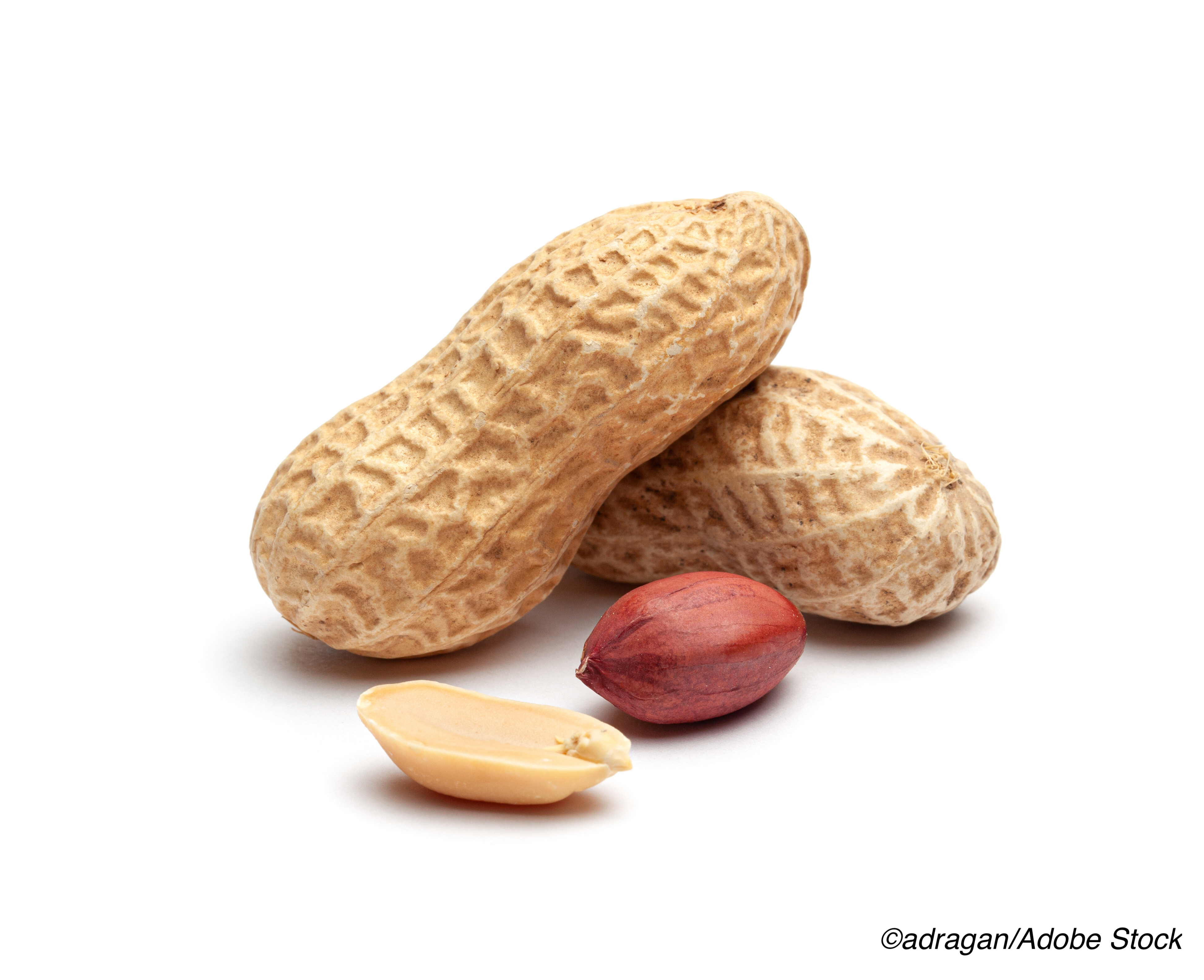Children and adolescents with peanut allergies continued to report high satisfaction with peanut oral immunotherapy 2 years into treatment, according to the latest data from an open-label, follow-on trial involving participants in the pivotal PALISADE phase III study.
Study participants or their parents reported high satisfaction with the effectiveness and convenience of the immunotherapy Arachis hypogaea (Palforzia), which became the first FDA-approved treatment for peanut allergy in U.S. children early in 2020. The immunotherapy was approved for use in Europe in December of 2020.
Speaking remotely to the annual meeting of the European Academy of Allergy and Clinical Immunology (EAACI), held July 9-12, PALISADE researcher Katharina Blumchen, MD, of University of Frankfurt, Germany, presented the patient satisfaction data based on surveys conducted after 1 year, 1.5 years, and 2 years on active treatment.
Parents of patients younger than age 12 or patients age 12 and older were asked to complete the 9-item Parent Satisfaction Questionnaire for Medication (TSQM-9), which is a validated survey that has been used in clinical trials of medications for asthma, atopic dermatitis, arthritis, multiple sclerosis, and other diseases.
The questionnaire was designed to assess effectiveness, convenience, and global satisfaction with active treatments, with each domain having three questions scored on a 5- or 7-point scale. Scores of 3 or more or 4 or more, respectively, indicated satisfaction. Total composite scores were calculated on a 1 to 100 scale, with scores of 60% or more indicating satisfaction.
Among patients on treatment for 1 year in the original PALISADE cohort and among those who continued treatment to 1.5 years, global satisfaction with the oral immunotherapy remained at 80% or slightly higher. Global satisfaction among patients on active treatment at 2 years was also over 80% at both the 1-year and 2-year time points.
Similar rates of satisfaction with the oral immunotherapy’s effectiveness were seen in all groups, with effectiveness judged slightly higher among patients continuing on the treatment at 2 years compared to 1 year.
Satisfaction with the convenience of treatment was lower but remained at or just slightly below the 60% level in all groups.
Blumchen addressed peanut immunotherapy convenience issues during a question-and-answer session following her presentation.
Oral peanut immunotherapy is designed to be taken daily at a similar time each day followed by an observation period. It is recommended that the treatment not be given prior to exercise, so for children who play sports the timing of treatment administration may be an issue.
“You have to have very good timing,” she said, adding that physicians can play a big role by counseling parents and patients on how to incorporate the therapy into daily life.
The study participants remaining on active therapy will continue the treatment for 5 years, with many transitioning from childhood to adolescence during this time.
Blumchen acknowledged that given this transition, adherence may prove to be an issue.
“When children are younger the parents are there (giving the medication), but we know that adolescents often have a problem with adherence. Also, treatment satisfaction will be very important to look at after 5 years,” she said.
In related research, presented as a poster abstract at the EAACI Congress, Kirsten Beyer, MD, of Germany’s Charite Universtatsmedizin Berlin, reported design and very preliminary data from a follow-up, open label safety trial (ARC008) involving participants in 6 oral peanut immunotherapy clinical trials (ARC002, PALISADE OLE, POSEIDON, RAMSES, ARTEMIS, RAMSES OLE).
Researchers are currently recruiting participants for the trial, and the frequency of adverse events and level of desensitization achieved through extending the treatment time are the study’s key endpoints.
Given that dosing regimens were not uniform in the different studies from which participants were enrolled, ARC008 participants are being assigned one of 5 different treatment pathways based on their original clinical trial. Participants who enter the ARC008 trial who are not on active treatment at enrollment are being uptitrated and maintained at a dosage of 300 mg/day.
As of Jan. 14, 2021, a total of 824 subjects from the original trials had been enrolled in the ongoing, open-label study designed to describe the treatment’s longer-term safety. Three-out-of-four (75%) participants were from North America (Canada, n=67), U.S., n=551), while the rest of the participants were from Europe.
At the 3-year treatment mark, 510 of the participants (61.9%) remained on active treatment and 314 had discontinued the therapy. The researchers provided no information on the reasons for discontinuation in their poster presentation.
-
Children and adolescents with peanut allergies continued to report high satisfaction with peanut oral immunotherapy 2 years into treatment.
-
Global satisfaction among patients on active treatment at 2 years was at or slightly above 80% at both the 1-year and 2-year time points.
Salynn Boyles, Contributing Writer, BreakingMED™
The trials were funded by Aimmune Therapeutics.
Researcher and presenter Katharina Blumchen reported receiving consulting fees from Aimmune Therapeutics, DBV Technologies, Bencard Allergie, HAL and Novartis and speaker’s fees from Aimmune Therapeutics, DBV Technologies, HAL, ALK, Allergopharma, Bencard Allergie, Nesle, Novartis, Nutricia, Thermo Fisher Scientific and Bausch and Lomb. She reported grant/clinical trials funding from Aimmune Therapeutics, DBV Technologies and Hipp.
The ARC008 trial is being funded by Aimmune, and the researchers reported grants from the company.
Cat ID: 99
Topic ID: 80,99,730,99,192,195,925



